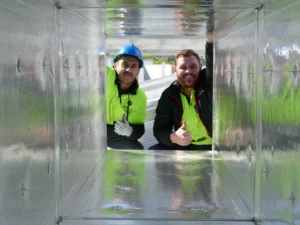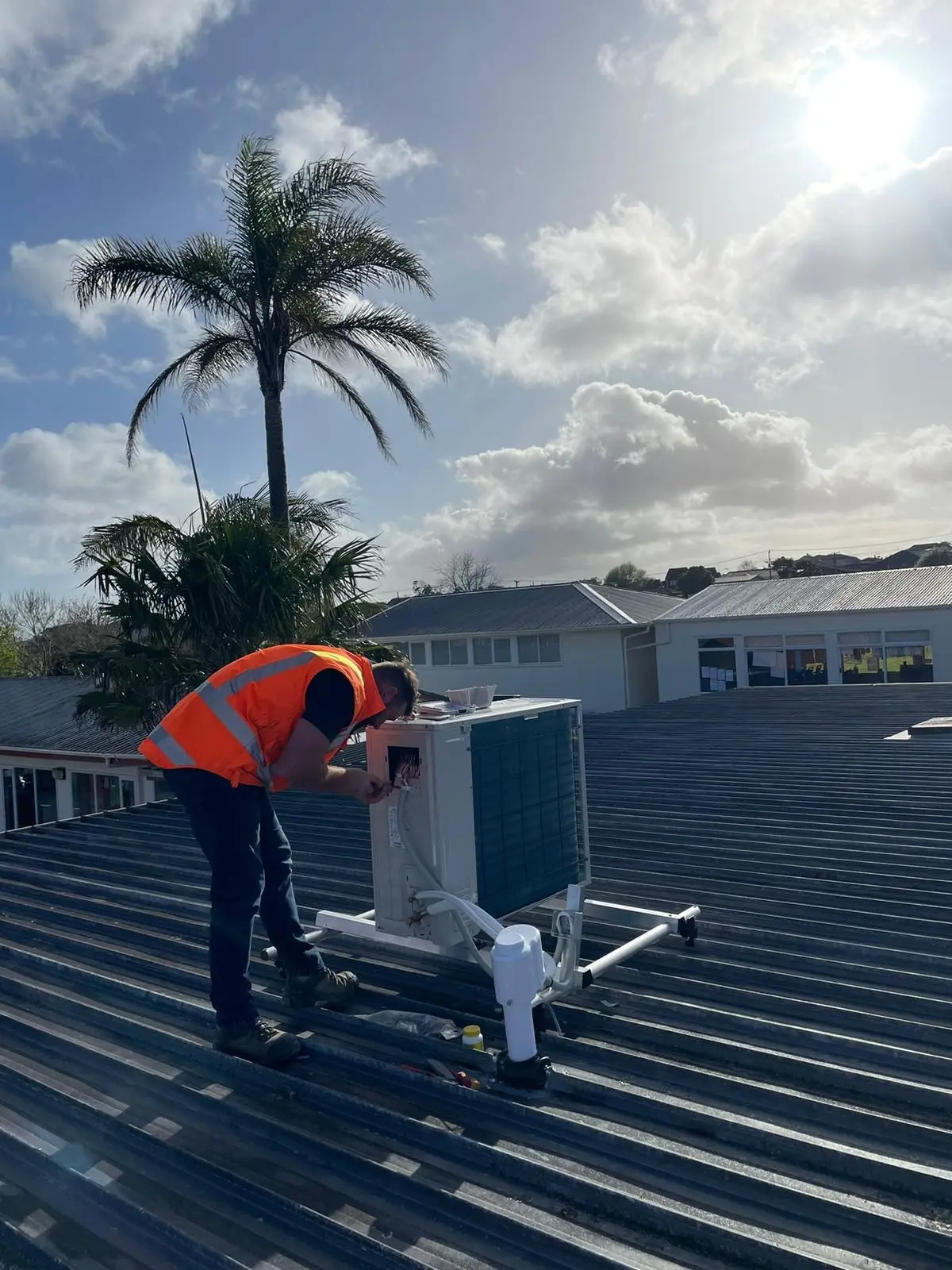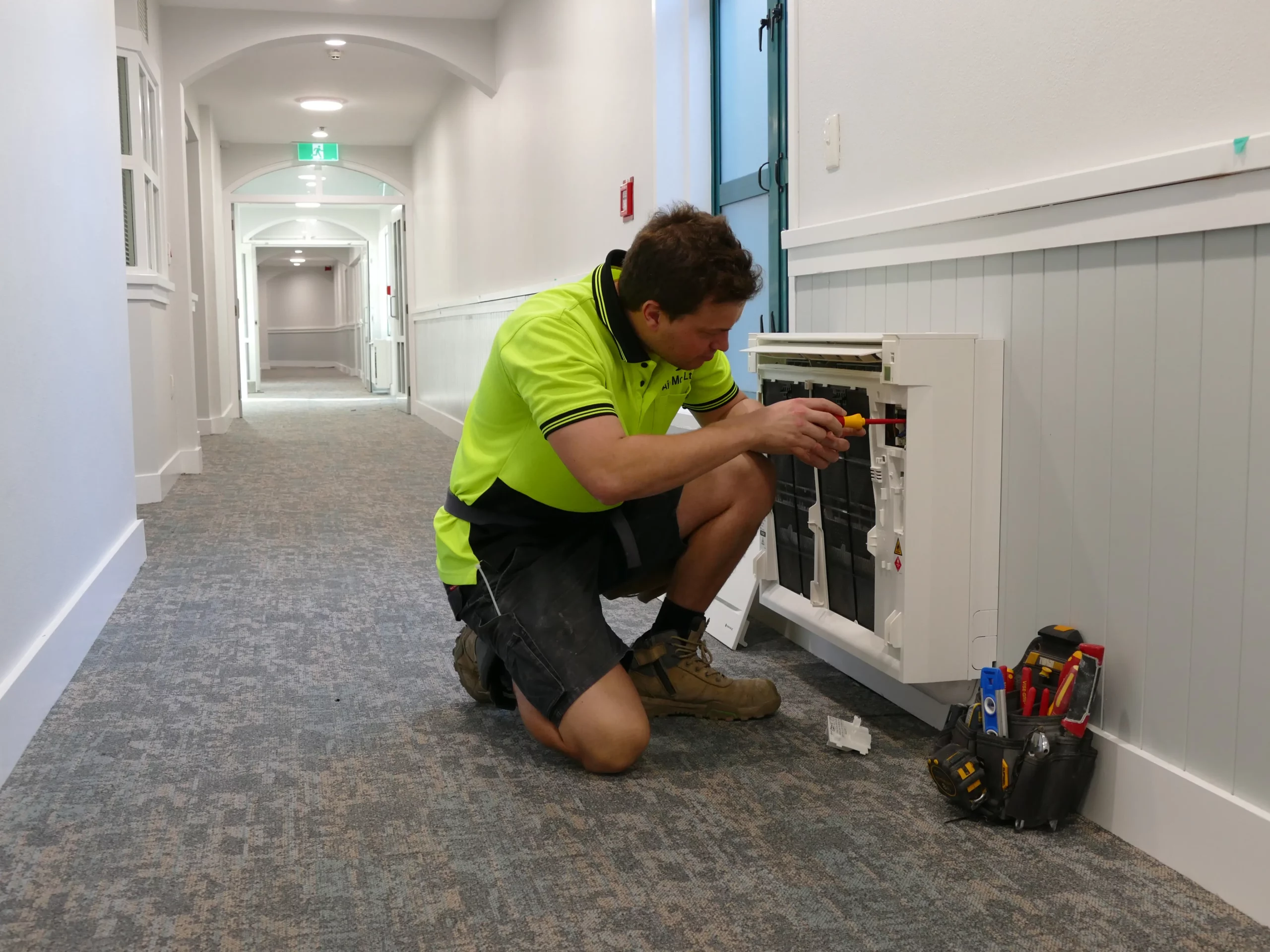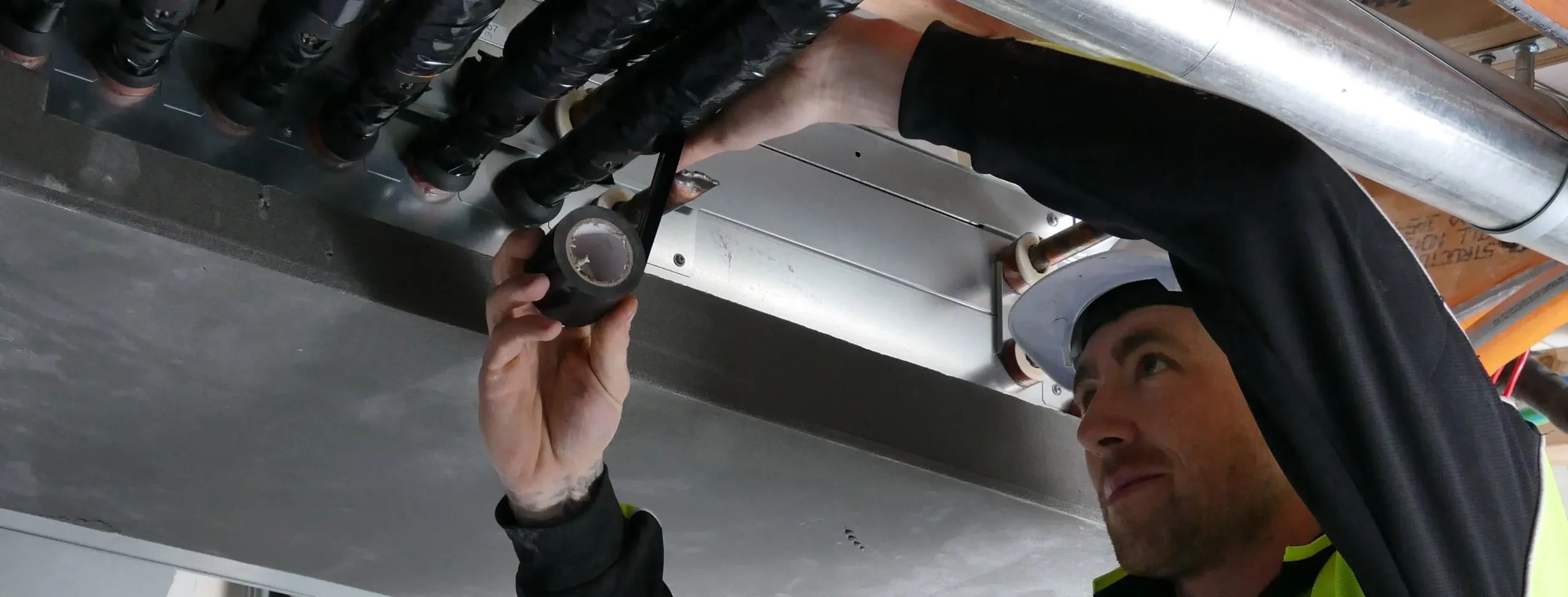Managing your commercial HVAC system can often feel like navigating a maze of maintenance schedules, unexpected breakdowns, and costly decisions. However, the good news is that understanding your commercial HVAC system becomes easier with proper knowledge and a reliable service partner.
This guide will walk you through what you should know about these systems, from how they work to when to replace your commercial HVAC system. With our expert insight, you can make more informed decisions to protect your investment and ensure comfortable, efficient operations year-round.
What is a Commercial HVAC System?
A commercial HVAC system is a large-scale heating, ventilation, and air conditioning solution for business environments.
Unlike residential HVAC systems that manage comfort in smaller spaces, commercial systems are more robust units engineered to handle the complex demands of larger buildings, multiple zones, and varying occupancy levels. These systems are responsible for:
- Maintaining consistent temperatures across large spaces
- Managing humidity levels to protect occupants and equipment
- Ensuring ventilation to meet building regulations
- Filtering air to create healthier indoor environments
- Controlling energy costs through efficient operation
How Does a Commercial HVAC System Work?
Before we dive into replacement needs, how does commercial HVAC work? Commercial HVAC systems comprise several integrated components that maintain a comfortable indoor environment.
Heating
The heating process typically begins with furnaces or boilers that use gas, oil, or electricity to generate warmth. Some systems alternatively employ heat pumps that transfer heat from the outside air or ground into the building. The heated air or water then circulates through a comprehensive network of ducts and pipes.
Ventilation
Ventilation is equally important, ensuring a constant exchange of fresh air throughout the building. The system pulls outside air in, filters it to remove contaminants, and distributes clean air through ducts and fans. At the same time, indoor air is extracted and expelled outside to maintain healthy, fresh air throughout the space.
Cooling
Cooling works by removing heat from indoor spaces using chillers or air conditioners. These refrigerant-containing units absorb indoor heat through evaporator coils and release it outside through condenser coils. A compressor makes this process efficient by circulating the refrigerant throughout the system.
How does a commercial HVAC system work so efficiently? Modern HVACs feature smart control systems that include sophisticated thermostats and sensors to monitor conditions throughout the building, allowing for customised temperatures in different areas.
Additionally, many modern systems incorporate energy recovery ventilation that recaptures energy from exhaust air to help condition incoming air. This design significantly reduces energy while maintaining a comfortable temperature throughout the building.
How Often Should Commercial Air Conditioning Units Be Serviced?
Commercial HVAC systems require regular maintenance to ensure maximum performance and longevity. So, how often should commercial air conditioning units be serviced? At least twice a year is ideal—typically in spring and autumn to prepare your system for the peak cooling and heating seasons.
Servicing should include:
- A thorough inspection of all components
- Cleaning filters and coils
- Checking refrigerant levels
- Testing system controls
However, some maintenance tasks require more frequent attention. We suggest checking air filters monthly and replacing or cleaning them when necessary, especially in areas with high dust levels or heavy system usage.
Understanding how often commercial air conditioning units should be serviced helps prevent breakdowns, maintain energy efficiency, extend equipment life, and ensure compliance with building regulations. Regular maintenance and servicing are far more cost-effective to maintain your system regularly than to repair it after a major failure.
When to Replace Your Commercial HVAC System
Replacing a commercial HVAC system impacts comfort and operating costs significantly. While most systems have a lifespan of up to 20 years, some signs indicate replacement is needed sooner:
- Frequent breakdowns requiring costly repairs
- Increasing energy bills despite regular maintenance
- Inconsistent heating or cooling across different zones
- Use of R-22 refrigerant, which has been phased out
- Multiple failures across major components
A good rule of thumb for when to replace your commercial HVAC system is that if repair costs exceed 30% of the price for a complete replacement, investing in a brand-new unit is likely more economical in the long term. Modern systems offer significant improvements in energy efficiency, and their smart control features can substantially reduce operating costs while improving performance.
Who is Responsible for the HVAC System in a Commercial Lease?
Understanding who is responsible for the HVAC system in a commercial lease is crucial for landlords and tenants. The lease agreement should clearly outline these responsibilities, but general industry practice typically splits duties between both parties.
Landlords are generally responsible for:
- Major repairs and replacements
- Structural components
- Regular maintenance and servicing
- Ensuring the system meets building regulations
Tenants are generally responsible for:
- Day-to-day operation
- Reporting issues promptly
- Minor maintenance tasks like filter changes
- Any damage caused by misuse.
Review your agreement to see who is responsible for the HVAC system in your commercial lease, and seek professional advice if these responsibilities aren’t clearly defined.
Trust Air MC for Your Commercial HVAC Needs
Need expert HVAC solutions for your commercial or residential space? Trust the team at Air MC for all your HVAC needs. Contact us today!








